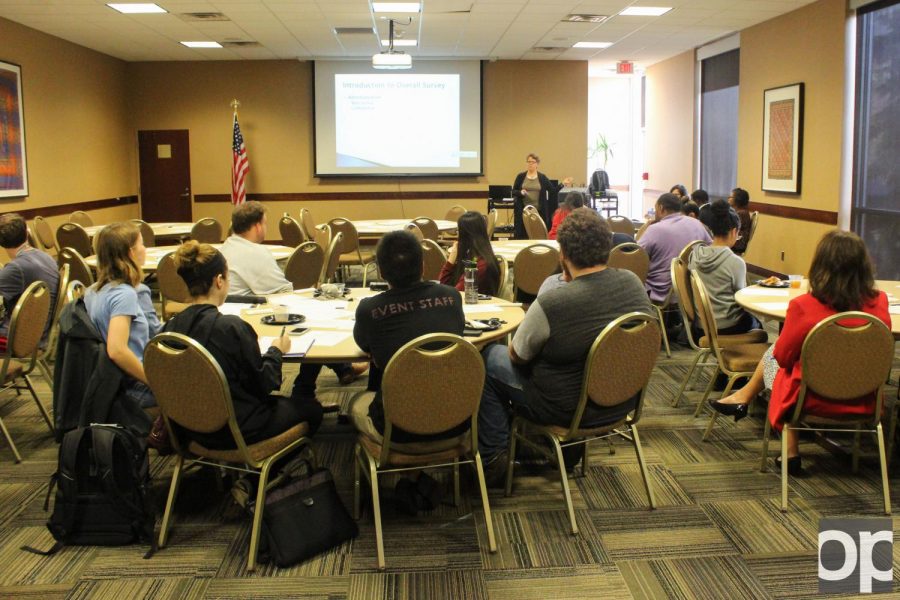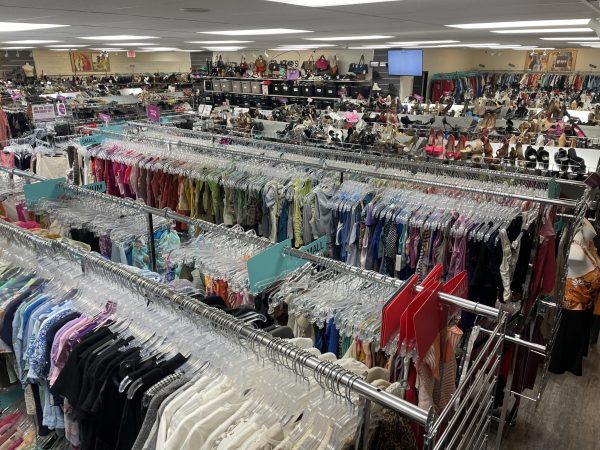Town hall meeting: OU’s 2017 Climate Survey
Students sounded off about issues brought up by the climate survey results.
The 2017 climate survey town hall meeting for students took place on Oct. 4 from 4 p.m. to 6 p.m. in the Oakland Room of the Oakland Center. The event was led by Vice President for Student Affairs and Chief Diversity Officer, Glenn McIntosh. Included was a presentation of results by consultants of the Survey Research Laboratory Dr. Sowmya Anand and Dr. Linda Owens, group interaction, suggested areas for action, a round table discussion and a Q&A.
“As we move through today’s dialogue, I don’t want you guys to hold back,” McIntosh said. “Looking around the room I don’t think you’ll be guilty of that anyways, which is a good thing.”
McIntosh wanted students to share their thoughts, feelings and actions in order to make the campus environment more welcoming and accepting to all people.
According to OU’s climate survey page, “Goals of the survey include measuring perceptions of inclusiveness, diversity, friendliness, cooperation, professionalism, recognition, respect, accessibility, support and opportunities for career advancement and academic success here on campus.”
The survey itself was administered online, and it was confidential so only Anand and Owens had access to the data files. A total of 18,624 students were invited to participate in the survey and 1,734 out of 18,624 students completed it. The response rate was 9.3 percent for students. The same survey was also held in 2013.
The student body was the largest group interviewed for the survey out of the staff and faculty members.
The overall climate of the university was assessed in the survey, including questions such as:
“Overall, how would you rate the climate on the campus where you are primarily located?”
“Overall, how strongly would you recommend Oakland University to other students?”
As for the results of the student survey, the overall climate was generally positive.
“Students appeared to be satisfied with the diversity they see on campus,” Anand said.
After the presentation of results, tables were randomly assigned to discuss strengths and weaknesses and areas of action such as “confidence that you can file a complaint or grievance about unfair treatment without negative consequences” and “difficulty balancing student life with family life.”
Students mentioned that in some cases they were not comfortable with filing complaints about their professors because they happened to also be chair of their department. Students also said that some surveys were not anonymous in certain classes so they could put their grades on the line by being honest about how they felt about the class.
As for balancing student life with family life, a group of students said they felt like they were outliers. People who lived on campus and were heavily involved in student organizations didn’t see much of their families and vice versa.
After the round table discussion and Q&A concluded, students were able to sign up for focus groups in case they wanted to ask any further questions about the survey.
To get the full 2017 executive summary of climate survey for students, check out the website.










